|
The new puppy supply checklist can be extensive! From food, crates, bowls, and leashes to the obligatory Halloween costume, new puppies need a lot of stuff!
While it’s a lot of equipment, don’t ignore their need for play and mental enrichment. Giving puppies the time, space and toys to play and exercise will save you time, money and headache in the long run. Learn more here, with this great handout about puppy enrichment, Don’t Let Boredom Ruin Your Puppy’s Brain, from Fear-Free certified veterinarian Dr. Kathyrn Primm. Check with our veterinary team on our favorite playthings, chew toys and puzzle feeders at your next visit, or shoot us a quick note via email or social media!
0 Comments
All dogs are exposed to mosquitos that can carry heartworm disease. Heartworm disease is a serious, and potentially fatal, disease that can infect dogs of any age. It is caused by foot-long worms (heartworms) that live in the heart, lungs and associated blood vessels of affected pets, causing severe lung disease, heart failure and damage to other organs in the body. Heartworm disease affects dogs, cats and ferrets, but heartworms also live in other mammal species, including wolves, coyotes, and foxes. Because wild species such as foxes and coyotes live in proximity to many urban areas here in St. Louis, they are considered important carriers of the disease. For more information about heartworm disease, check out the resources at the American Heartworm Society.
St. Louis dogs are at significant risk for heartworm disease and we treat several dogs each year. Treatment is extensive, painful and costly, and much easier to prevent! We recommend keeping your pet on preventatives, like Sentinel Spectrum, ProHeart 6 or ProHeart 12 year round. All puppies are sent home with a complimentary dose of Sentinel Spectrum– a monthly, oral chewable heartworm and intestinal parasite preventative. We have chosen Sentinel Spectrum as our go-to for most patients, because it is the most comprehensive product for heartworm and intestinal parasites- it covers two more additional intestinal parasites than other preventatives like Heartgard. It gives your pet protection against heartworm disease, roundworms, hookworms, whipworms and tapeworms. However, we will work with you to determine the best lifelong prevention based on your pet’s lifestyle, risk assessment, taste preferences and convenience options you might choose. Have trouble remembering to give that monthly pill? We also offer ProHeart 6 and ProHeart 12– an injectable heartworm preventative that lasts 6 months for patients over 6 months (ProHeart 6) and ProHeart 12, which lasts 12 months and is available for dogs over 12 months of age. We even remind you when it’s time to come in for the next injection! In some cases, oral preventatives may not recommended for your pet (i.e. those with a food allergy or reaction to oral preventatives). For those pets, we recommend Advantage Multi- a monthly topical heartworm, flea, and intestinal parasite preventative. NOTE: Advantage Multi does NOT cover ticks and additional preventatives may be necessary. Can’t make it into the clinic to pick up your preventatives? All of our preventatives can also be found on our online pharmacy and shipped directly to your door! Our veterinarians will work with you to determine what vaccines and preventative care schedule is best for your puppy, based on their age, breed and lifestyle. In general, our hospital follows the American Animal Hospital Association (AAHA)’s most recent canine vaccination guidelines to help provide a solid foundation for your puppy’s preventative healthcare. However, depending on your puppy’s past vaccines, response to vaccines, future lifestyle, and a host of other factors assessed by your veterinarian at their first visit, your puppy may not follow this exact schedule. We’ll work with you to create a customized plan to give your pet the best protection and start on their long, happy life!
The following document outlines our general recommendations for canine patients and addresses not only vaccinations, but intestinal parasite prevention, heartworm prevention, flea/tick prevention, and some early training guidelines. If you have any questions or concerns regarding vaccines, diet, behavior or preventatives (heartworm, flea, tick, and intestinal parasites), please don’t hesitate to ask a veterinarian or staff member. Canine Preventative Care Schedule Dogs and cats can become hosts to many intestinal parasites, some of which can cause
serious symptoms and/or be transmitted to people. For this reason, we follow the CDC’s recommendation to deworm all new puppies. We also recommend that all puppies have at least TWO negative fecal examinations over the course of their initial preventative care cycle to ensure that they are parasite free and none have been missed. Adult dogs should be tested yearly. Finally, we recommend monthly heartworm preventatives YEAR-ROUND, as these preventatives also contain ingredients to prevent intestinal parasites like roundworms, hookworms, and in some cases, whipworms and tapeworms. We typically recommend products like Sentinel Spectrum and Bravecto. Talk to one of our veterinary team members to determine the best choice for your pet. Manufacturer rebates are often available for 6-12 month supply purchases. Below is a brief description of the common intestinal parasites we encounter in practice and will check your pet for with their routine fecal examinations: ROUNDWORMS Roundworms earned their name because of their tubular, or “round,” shape. There a couple of different species that can affect your pup, but the most important to know are Toxicaris canis and Toxicaris leonina. Dogs (and cats) can get roundworms from a variety of carriers. The most common source is other dogs; because infected dogs shed microscopic roundworm eggs in their feces, your dog could become infected by getting too close to another dog’s poop. He or she doesn’t even have to eat it – a simple sniff or lick is all that’s needed. Roundworms can also be spread by other animals such as rodents, earthworms, cockroaches, and birds. Roundworms can be transferred to humans. Contact with contaminated soil or dog feces can result in human ingestion and infection. Roundworm eggs may accumulate in significant numbers in the soil where pets deposit feces. Once infected, the worms can cause eye, lung, heart and neurologic signs in people. Children should not be allowed to play where animals have passed feces. Individuals who have direct contact with soil that may have been contaminated by cat or dog feces should wear gloves or wash their hands immediately. HOOKWORMS Hookworms are the second most common intestinal parasites found in dogs, and they are less commonly found in cats. Your pet can become infected when larvae get into the animal’s skin or the lining of the mouth, which may happen if your pet eats or rolls around in infected feces, for example. Cleaning up dog poop immediately can help prevent the spread of hookworms, and some heartworm preventatives are also effective against other parasites like hookworms. Once inside an animal, hookworms actually bite into the intestinal lining and suck blood, and infections can result in potentially life-threatening blood loss, weakness, and malnutrition. Plus, hookworm infections are zoonotic, and can be passed to people. In humans, the larvae produce severe itching and tunnel-like, red areas as they move through the skin and can cause intestinal problems if eaten. WHIPWORMS The whipworm is one of the four most common intestinal parasites of dogs. Whipworms reside in the cecum, which is inside your dog’s body where the small intestine and large intestine meet. Dogs become infected with whipworms by swallowing infective whipworm eggs in soil or other substances that may contain dog feces. Dogs that are infected with a few whipworms may not have any signs of infection. More severe infections can cause bloody diarrhea and severe disease. TAPEWORMS Tapeworms get their name from the fact that they look like — you guessed it — tape. The body of the tapeworm is segmented up to its neck. Its mouth is filled with six sets of teeth that the parasite uses to attach itself to the intestinal lining. Once it’s attached, it moves in permanently and starts stealing its meals from your pooch. Tapeworms are usually transmitted when a dog digests a flea during grooming. Dogs can also get tapeworms by ingesting the eggs shed by other animals or by hunting flea-infested rodents. GIARDIA Giardia is a microscopic, protozoan parasite (but not a worm!) that causes inflammation of the intestinal tract and subsequent diarrhea that can be very serious for both pets and people. It has been referred to as backpackers’ disease because of the risk of exposure when hiking. Giardia is transmitted by oral ingestion of water or food that has been contaminated by stools of infected people and animals. Acute infection after exposure can last from 1-2 weeks. The clinical signs of Giardia in animals and people are very similar and may include: · Diarrhea · Gas · Greasy stools that tend to float · Stomach or abdominal cramps · Upset stomach or nausea/vomiting · Dehydration (loss of fluids) and weight loss COCCIDIA Coccidiosis is a disease caused by the tiny, single-cell pests, coccidia. These parasites can live in the wall of your dog’s intestines. They are most common in puppies, but can still infect older dogs and cats, as well. Our canine friends can become infected by swallowing dirt or other things in an environment that is contaminated with coccidia- infected feces. If your dog is infected with coccidia, the symptoms can vary. In adult dogs, there may be no signs of infection, while in puppies the symptoms can be more serious. The most common symptom is diarrhea; in severe situations, the diarrhea can be accompanied by blood in the stool. If you have any questions or concerns about intestinal parasites and your pet, please speak to one of our team members! If your pet has diarrhea or you’d like to have their fecal sample checked for parasites, check out our blog on info and tips for collecting and submitting a sample! Did you know that puppies learn and develop a big part of their adult personality by 16 weeks of age? Their window for accepting and experiencing different stimuli (think strangers, day care, grooming, other dogs, kids) can start to close at just 12-14 weeks of age?
If you want a happy dog that takes life in a joyous stride, the clock is ticking. The positive (or negative) associations that young dogs develop during this critical brain development can last a lifetime … for better or worse. So let’s make it better! Get your puppy off to a great start by with this handout, written by a Fear-Free certified expert, Dr. Kathyrn Primm. If you have any other questions, don’t hesitate to ask a member of our team! Read the 5 Secrets to a Well-Adjusted Puppy here! Choosing an appropriate food for your dog or cat is an important decision that can maintain and improve your pet’s lifelong health. With so many options available, it may seem overwhelming to pick the best diet for your pet. Each pet’s nutritional requirements are unique based on their age, activity level, lifestyle, and any existing medical conditions. The veterinarians at City Paws Veterinary Clinic recommend completely balanced diets which are formulated by veterinary nutritionists, have undergone extensive food-trial safety testing, and verified by AAFCO (Association of Animal Feed Control Officials).
Proper nutrition is vital in supporting healthy development of growing puppies and kitten. During stages of growth, puppies require a different balance of vitamins and minerals in comparison to adult animals. In general, we recommend feeding puppies a diet made for growth for the first full year of life. However, a veterinarian can make specific suggestions based on the individual needs of your pet. Below are a few suggestions of balanced diets formulated by nutritionists and have undergone extensive safety testing: This list of recommendations does not encompass all the appropriate diets available for your pet. Each pet is unique and may require additional considerations. In some cases, home-made diets are desired. These diets should be formulated specifically for each individual pet by a certified veterinary nutritionist to ensure that they are completely balanced and meet the required standards of vitamin and mineral balance. Dog and cat foods are constantly evolving and changing. New dietary options are available weekly and choosing the proper diet may feel like a difficult decision. The staff and veterinarians at City Paws Veterinary Clinic would be happy to assist you in making the proper choice for your pet. Please do not hesitate to contact us with your questions and concerns. Having a new puppy can be so exciting….and so tiring! Housetraining can be an exhausting, but ultimately essential part of puppyhood.
In general, avoid negative correction (no more rubbing their noses in it), and set your puppy up for success with frequent outings, a small confined safe zone or crate, established mealtimes and lots of praise! Try taking your puppy to the same area consistently to go to the bathroom, and a separate area for play. Understand that accidents may happen for the few months, but if your pet’s housetraining isn’t going as expected or you have any concerns, please speak to a member of our team. Check out this great The Secret To Housetraining Your Puppy handout from Dr. Kathyrn Primm, a Fear-Free certified veterinarian, for more helpful tips! As always, we’re just a click, email or phone call away! All dogs in the St. Louis area are at risk for fleas, the most common external parasite of dogs. If frequenting areas with tall grass and a lot of trees, your dog also will be exposed to ticks.
Fleas can not only cause extreme itching and skin disease in your pets, but they can also carry tapeworms (intestinal parasites). Pets can bring fleas into your home, causing problems for your entire household! You can read more about those pesky free loaders here. Ticks can also carry serious diseases in pets and people, including Ehrlichia, Lyme disease and Anaplasmosis. Again, pets can carry ticks into your home, where they could re-attach to people, so prevention is best for everyone! For more information about ticks and diseases they may carry, visit this link. We offer several flea and tick preventatives to keep your pet covered year round. Preventatives are based off of weight, so as puppies we recommend only buying one or two doses at a time until full grown in order to ensure your puppy gets the correct dose as they grow. All new puppies are sent home with a complimentary dose of Bravecto, a once-monthly, oral chewable flea and tick preventative and is a great product to continue lifelong. Have trouble remembering to give that monthly pill? Bravecto's 3 month dosing option may be for you once your dog is grown. Bravecto is a chewable oral flea and tick preventative that lasts for 12 weeks. We even remind you when it’s time to get your next dose! However, Bravecto is only labeled for 8 weeks for one of the tick species (lone star tick). If your pet has a high exposure to ticks, Bravecto may not be the best choice as the lone star tick can carry tick borne diseases. While we prefer oral preventatives for their ease of administration, in some cases topical preventatives may be recommended instead (i.e. pets with food allergies/sensitivities or reactions to other preventatives). We recommend Seresto collars for those patients. Can’t make it into the clinic to pick up your preventatives? All of our preventatives can also be found on our online pharmacy and shipped directly to your door! Nail trimming can be tricky for a lot of pet parents. Some patients still need professional assistance- our veterinarians can help you evaluate your pet’s individual situation and in some cases, recommend medication to make this procedure less stressful. The good news is that are some tricks at home that can help many pets get used to you giving them nail trims.
Check out this video, or read here for some Fear Free nail trimming tips! How To Trim Puppy Nails Without a Fuss Hunter was recently adopted and his new owners were interested in what kind of breeds may be in his background. He was tall and leggy like a Great Dane, but a little soft and fluffy like a lab. Both breeds come with a few mobility and heart related health conditions, and for size planning alone, his owners elected to find out more about his genetic makeup and came to us to have a Genetic Health Analysis test! Before we share his results, check out his pics and make your guess! Then, scroll down to see his full report! We drew a small sample of blood from Hunter's front leg (while giving him lots of treats of course) and packaged it with a barcode unique to him and sent as part of a Royal Canin Genetic Health Analysis test. In about two weeks, Hunter's owner and our office both received and email with the full report! So, what breeds make up Hunter's family tree? 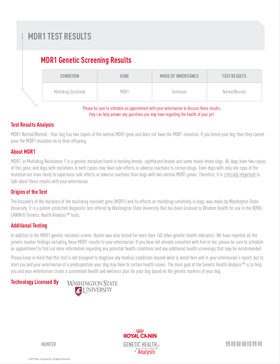 This test goes back all the way to Hunter's great-grandparents! He has labs, boxers, German Shepherds and even Siberian Husky in his background! More importantly, we also found out that Hunter does not carry the MDR1 (Multi-Drug Resistance Gene) or any other genetic diseases that we should worry about! Using this information, we went over the results with Hunter's family, added a copy to his medical record, and recommended a quality large-breed puppy food. We are thrilled we could give them more information on his genetic breed background and some extra peace of mind knowing he is shaping up to be one healthy pup! To learn more about the Genetic Health Analysis testing, check out our blog here, or click here to make an appointment! |



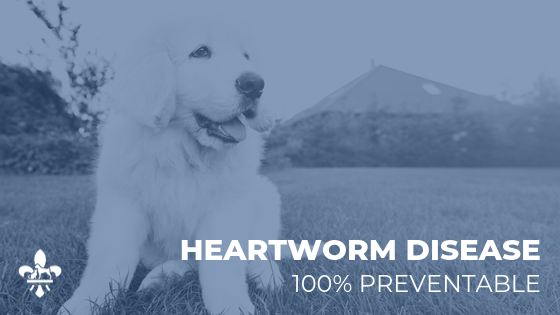
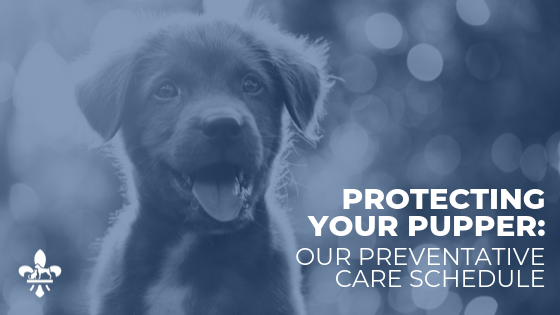
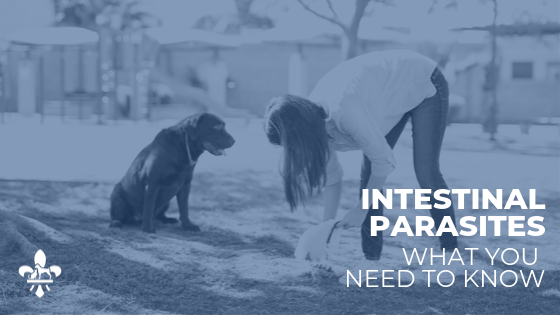

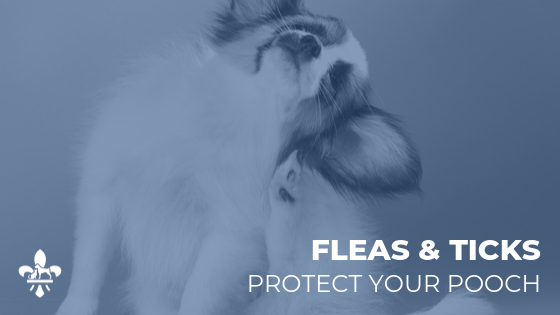

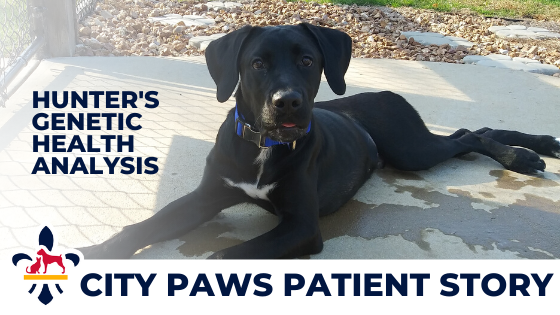



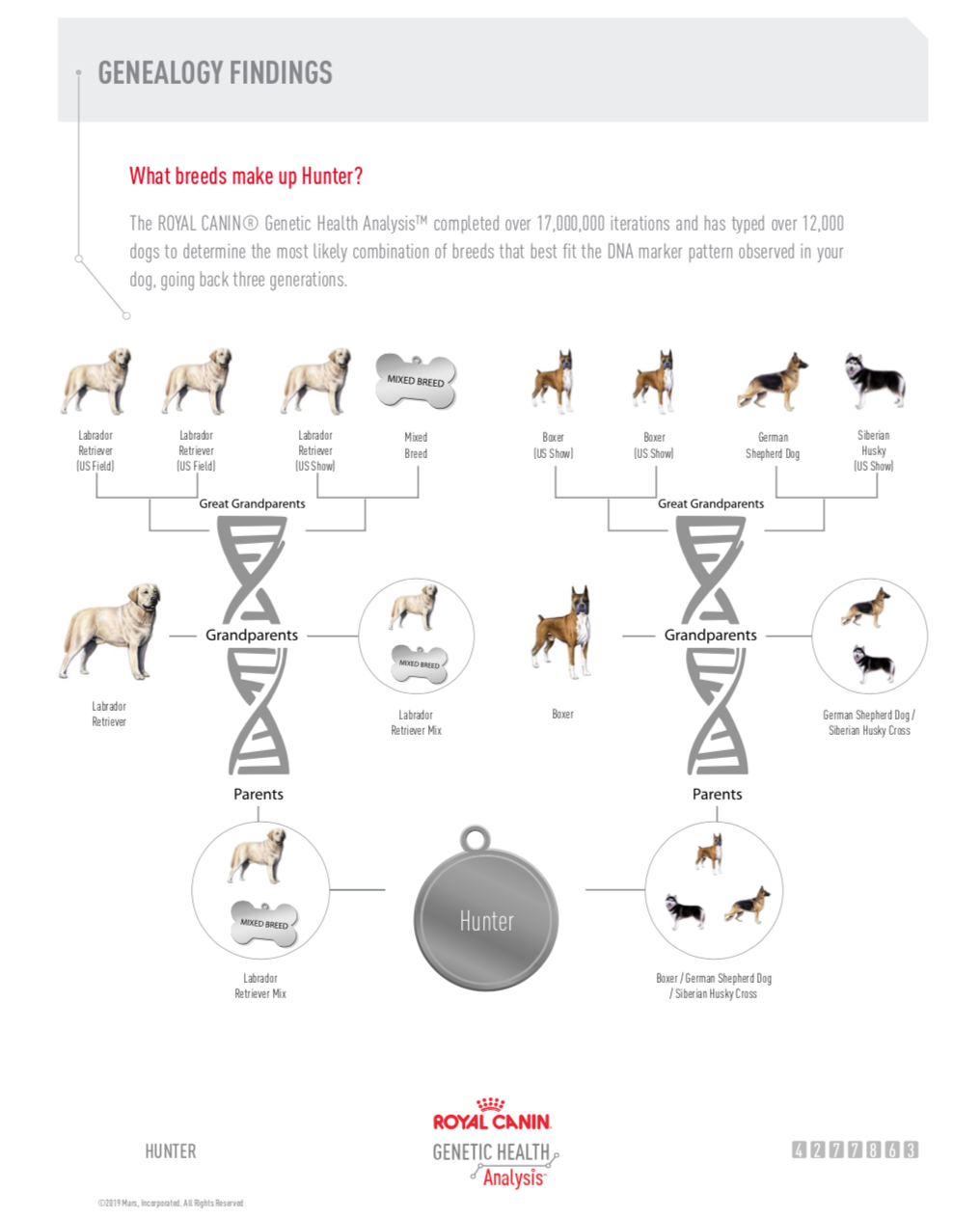
 RSS Feed
RSS Feed